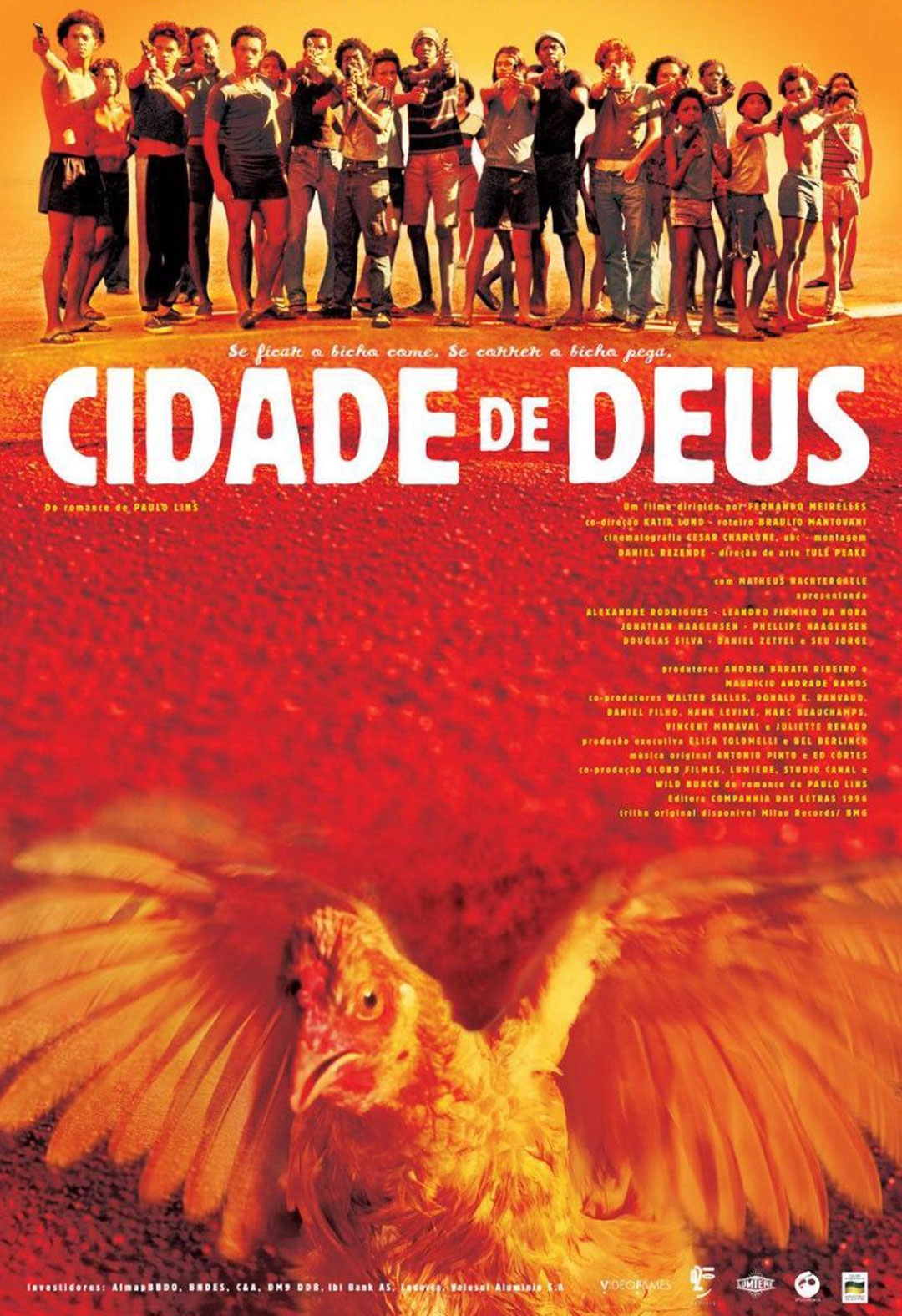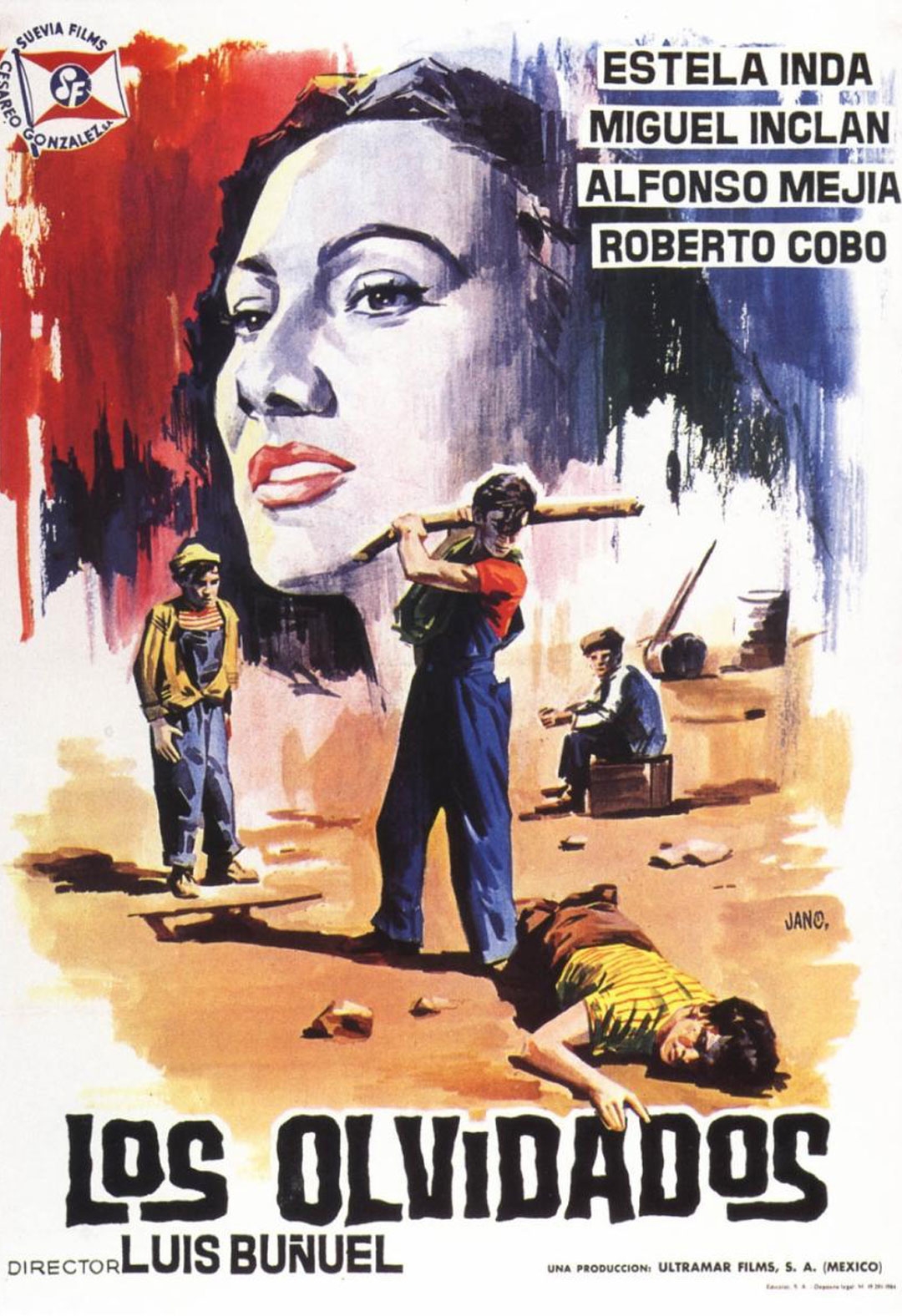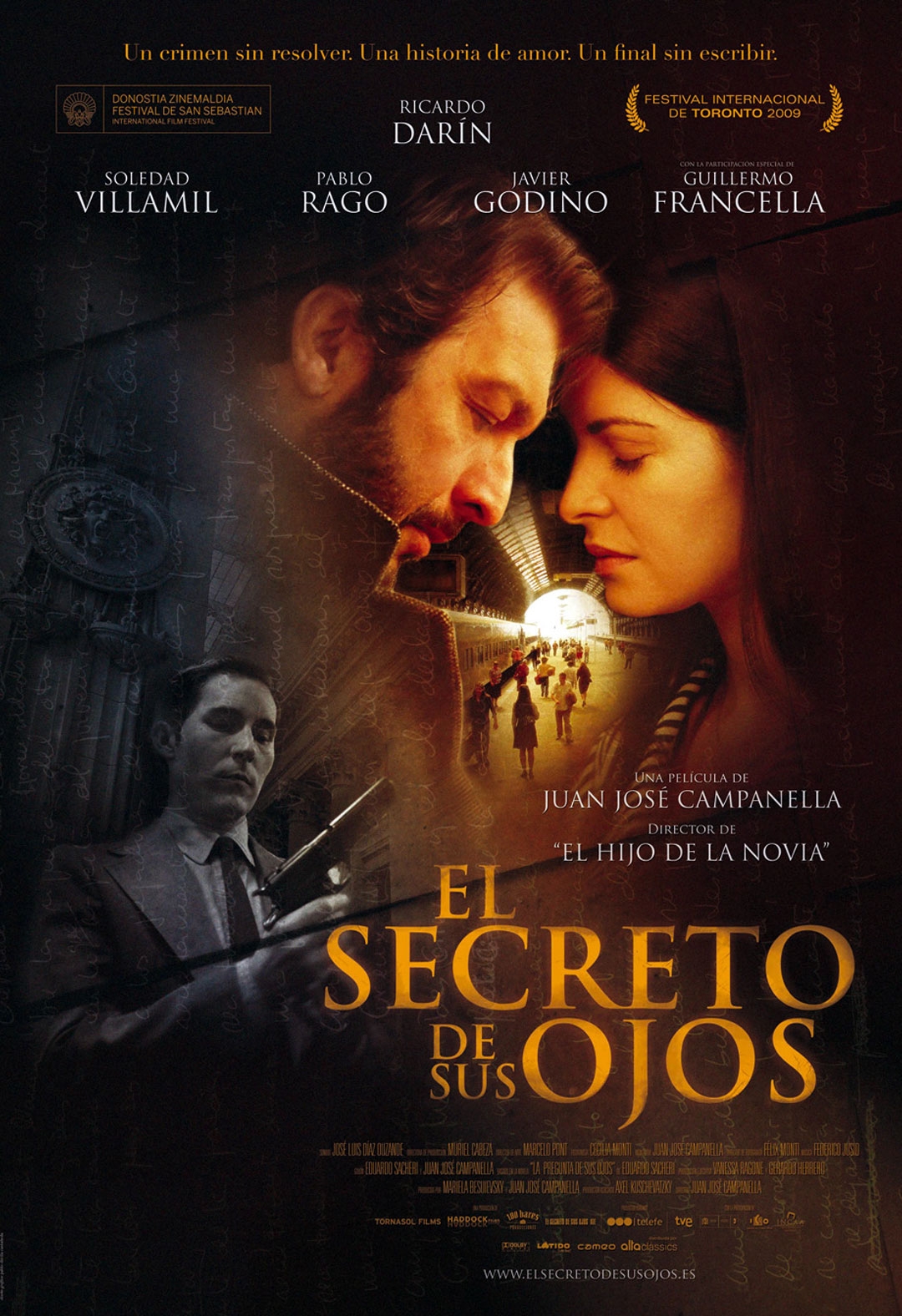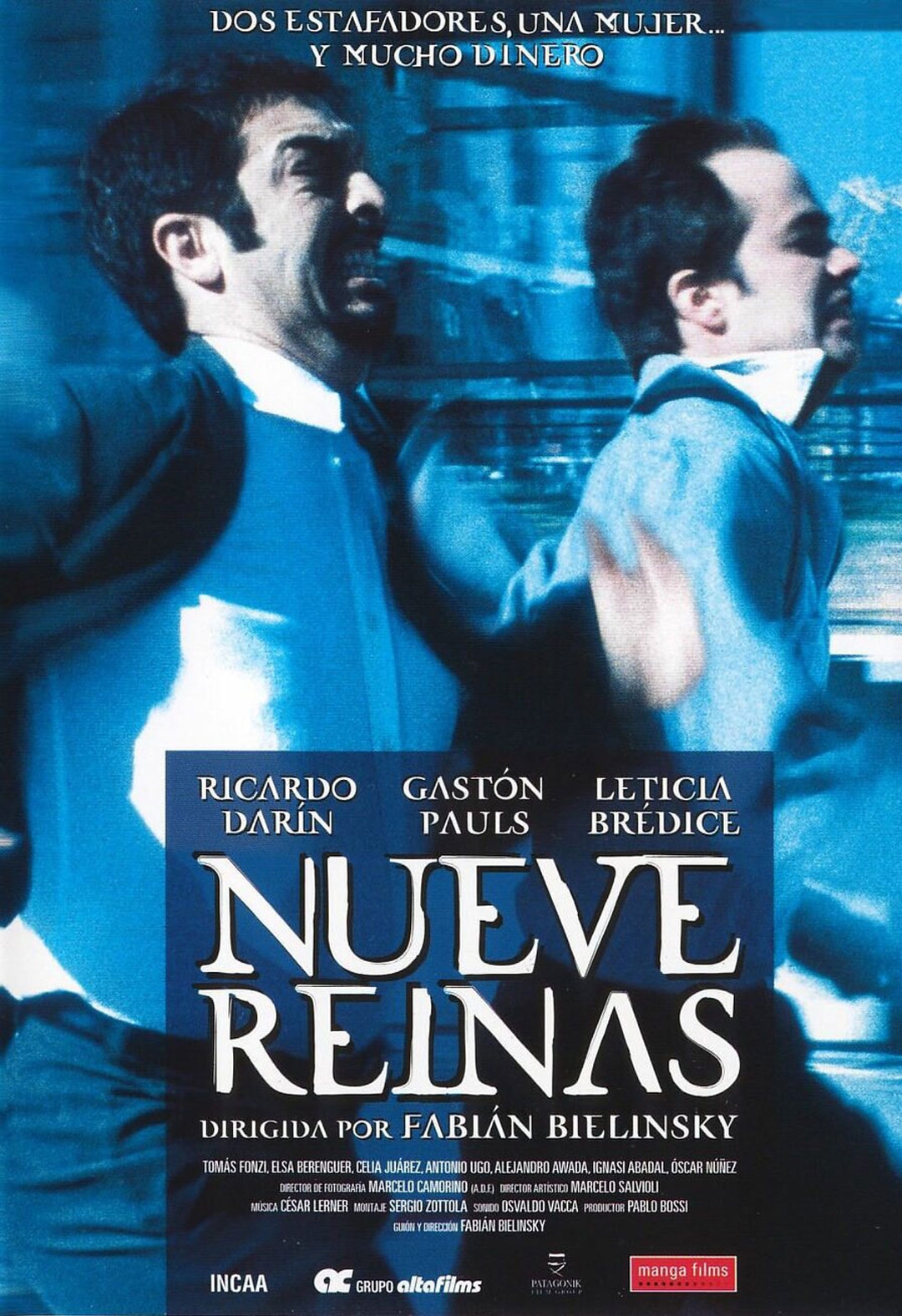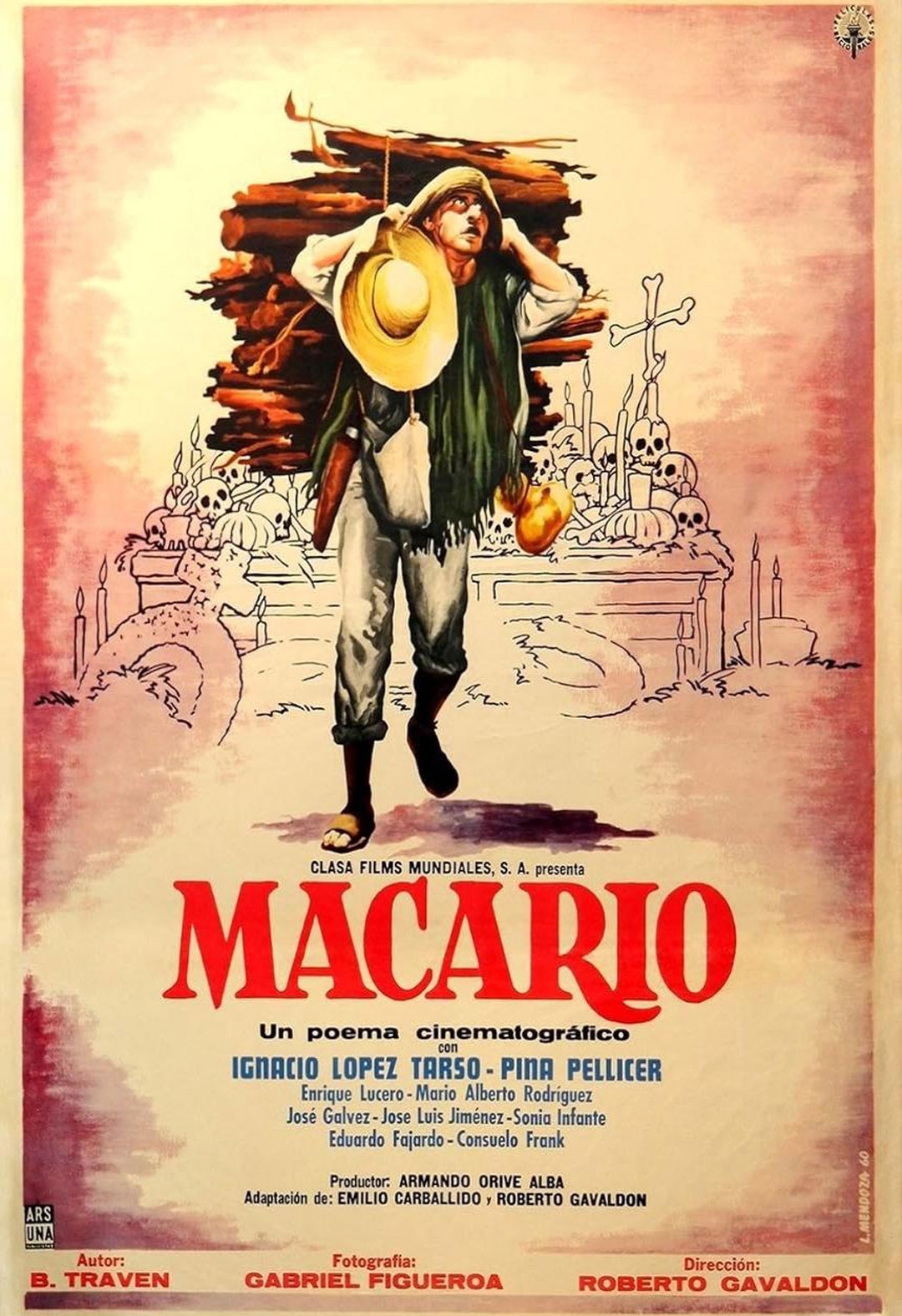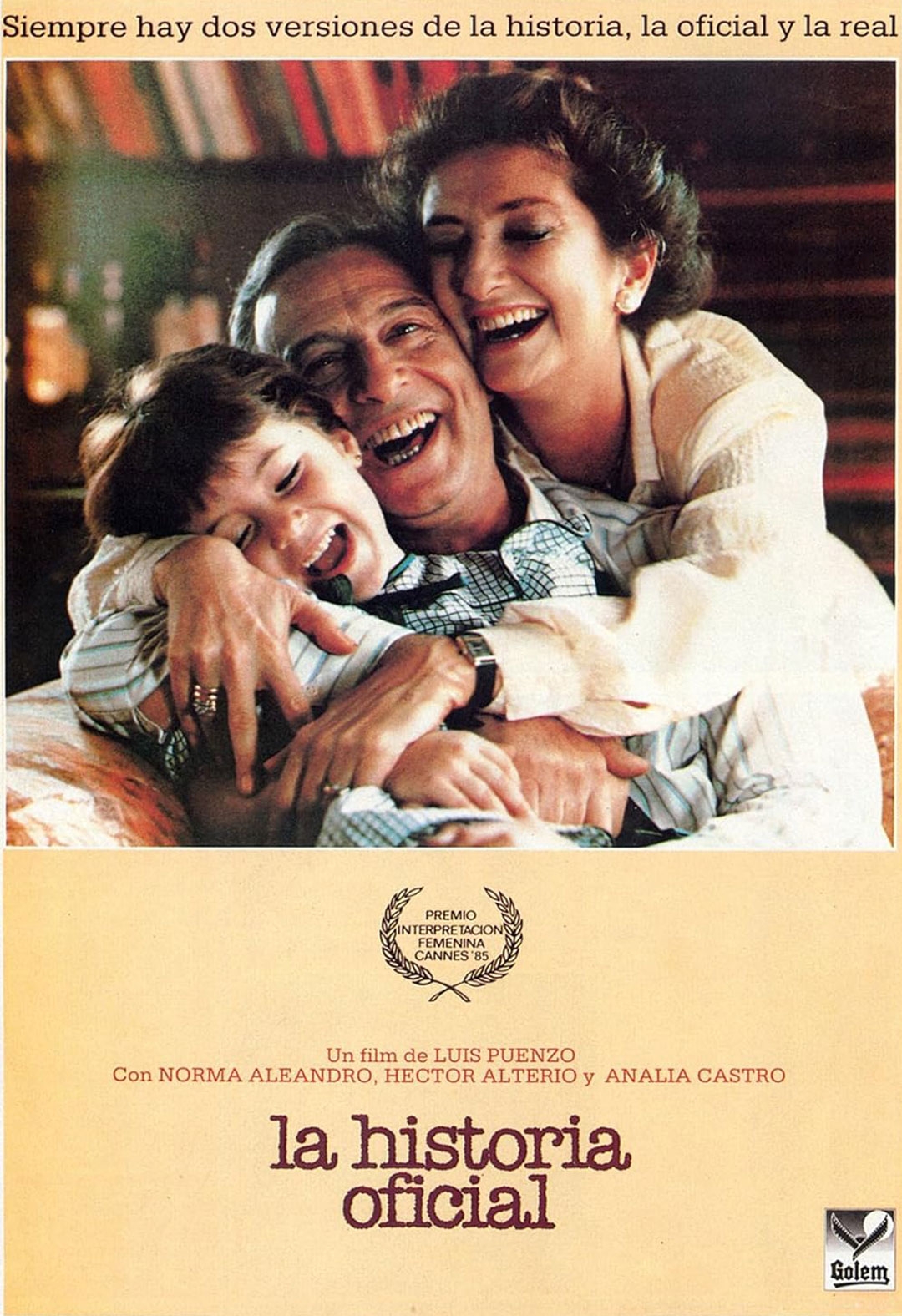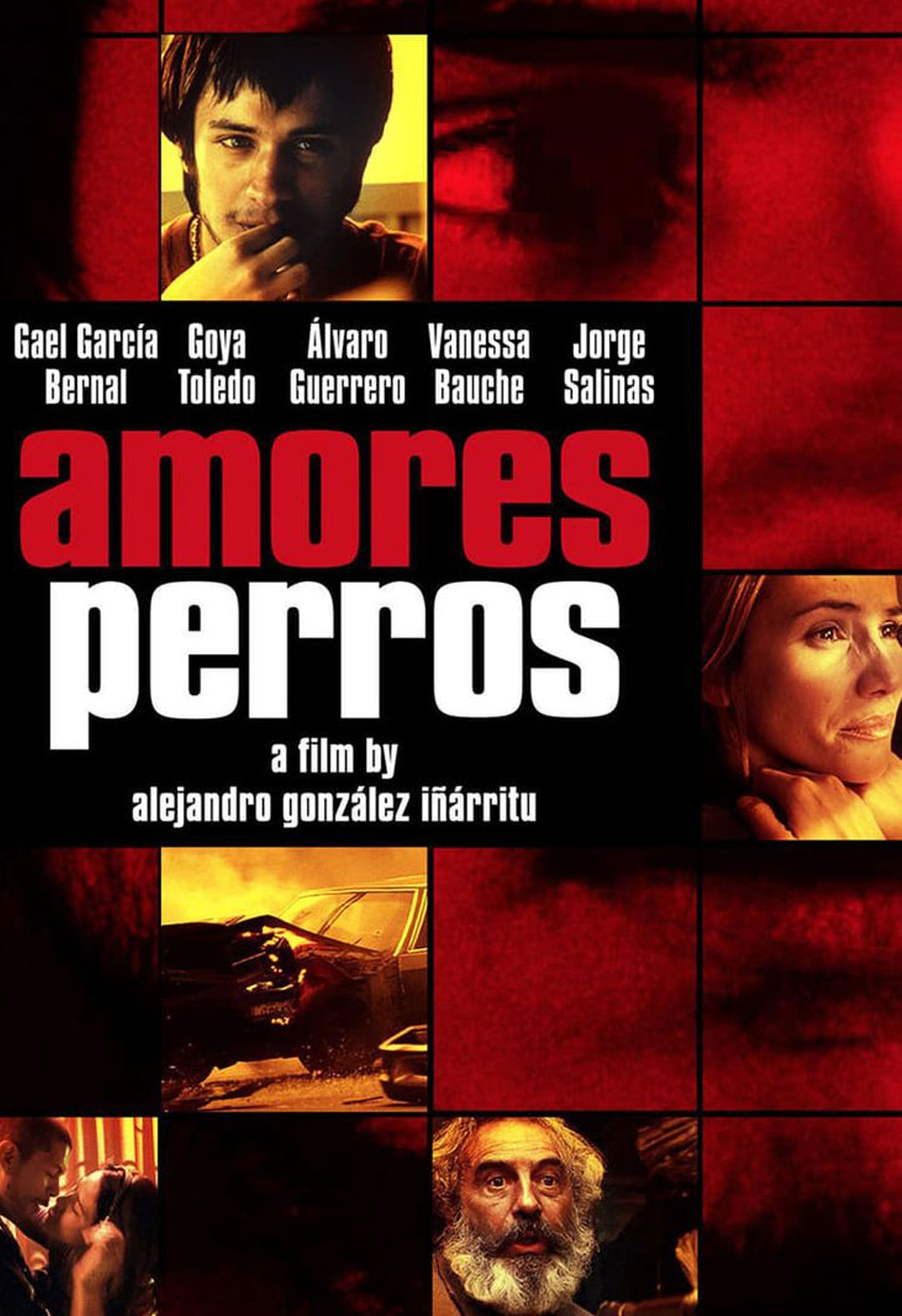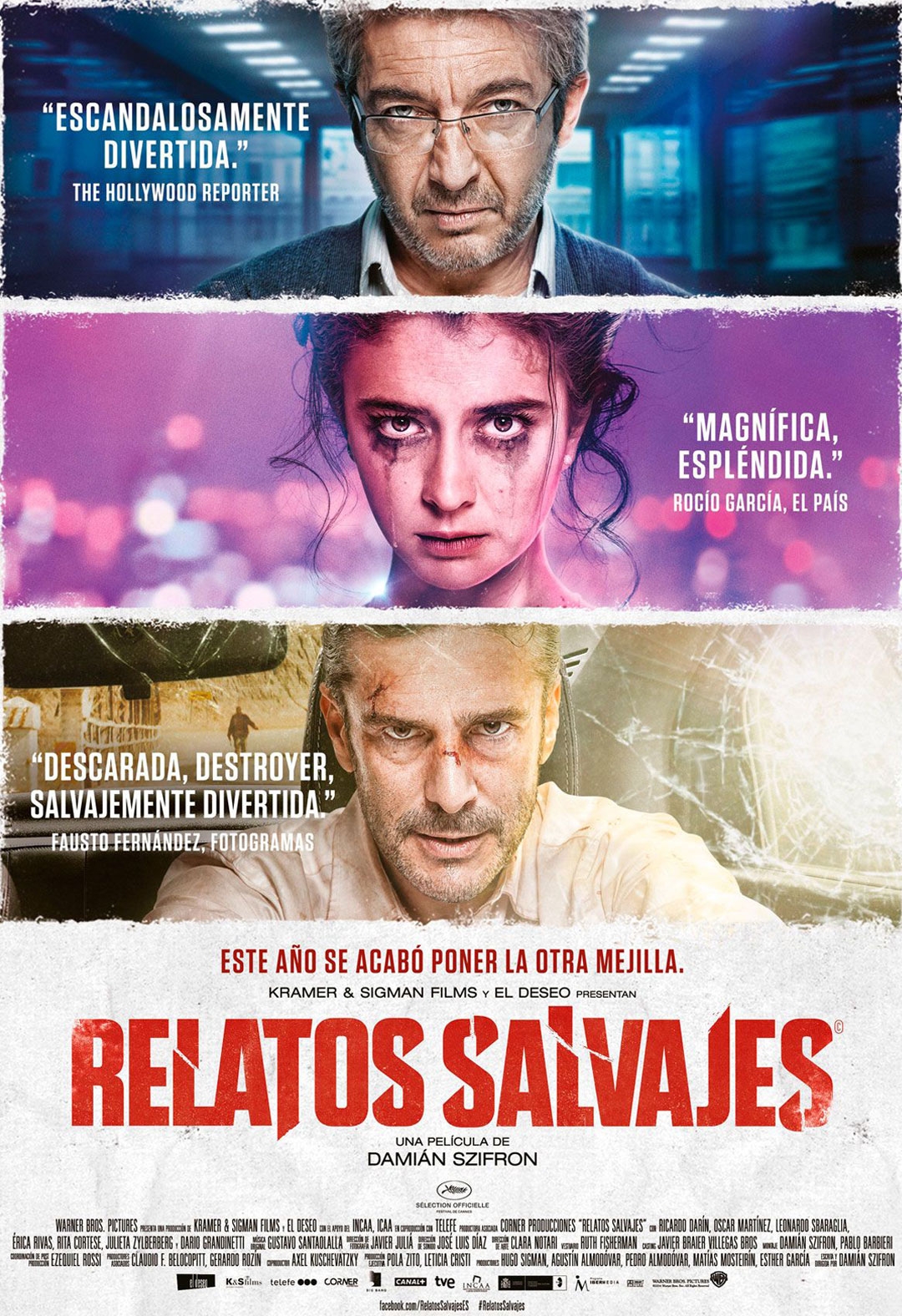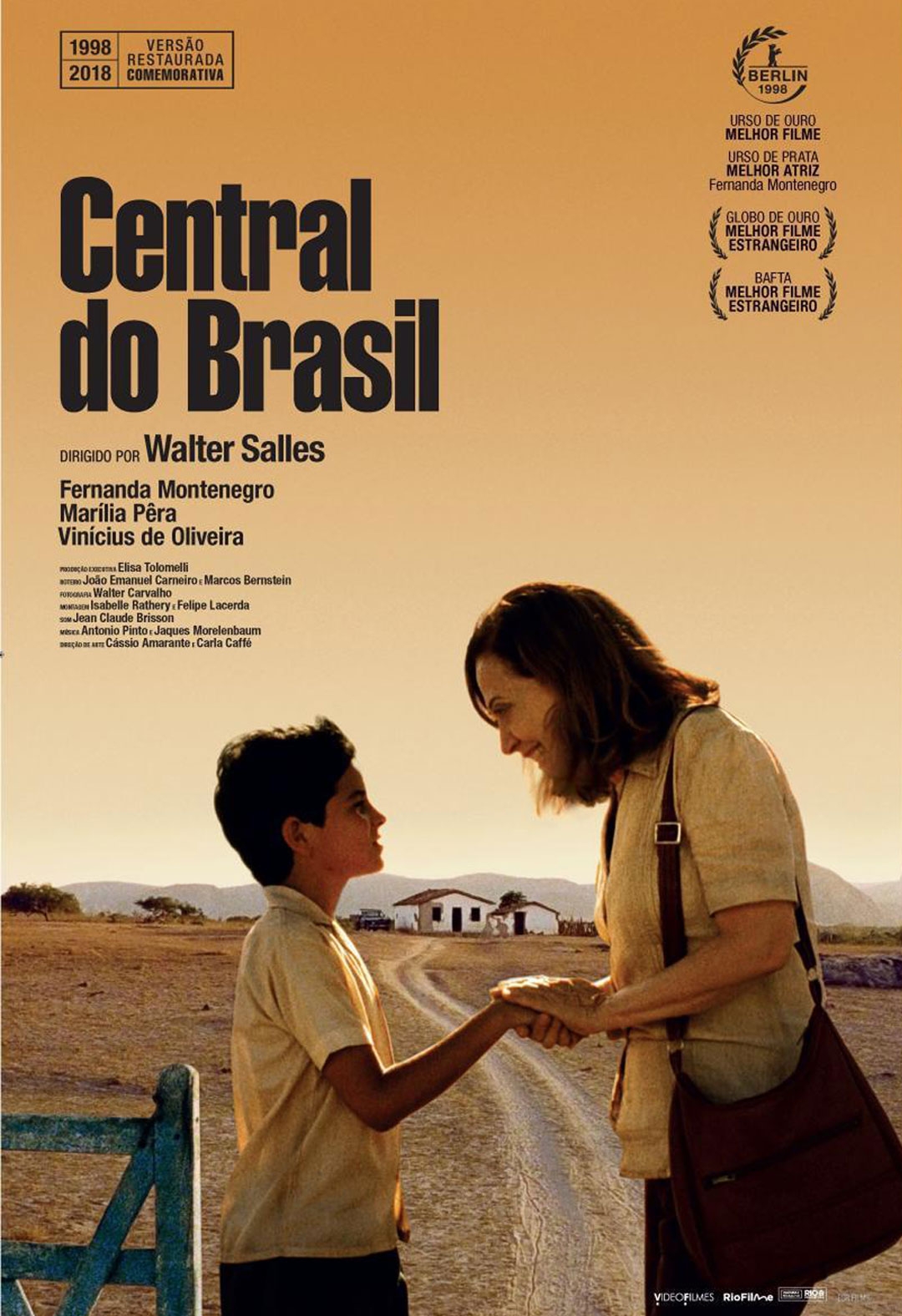Best Latin-American films
The stories of a continent

The next edition of the Platino Awards is around the corner (27th of April) and, to celebrate, we’re going to fly around Latin America to discover the best films in its history. A journey on which we’ll find directors like Fernando Meirelles, Adolfo Aristarain or Alejandro González Iñárritu, and actors like Ricardo Darín, Fernanda Montenegro or Gael García Bernal.
The recent success of the Brazilian film I’m Still Here at the Oscars is just more proof of the fact that Latin-American cinema is having a moment. It became the fifth to be granted the Award for Best International Feature Film after The Official Story (1985), The Secret in Their Eyes (2009), A Fantastic Woman (2017) and Roma (2018). The last two were also successful at the Platino Awards, which started in 2014 to celebrate the quality of productions on both sides (Argentina, Colombia, Venezuela, Brazil, Cuba, México, Chile, Bolivia...) of the ocean (Spain and Portugal). Who will win this year? We’ll find out on the 27th of April at an awards ceremony presented by Aislinn Derbez and Asier Etxeandía, and sponsored by Iberia, who is also in charge of awarding the Public’s Choice Platino Award. It is precisely by taking into account the votes of the public on FilmAffinity, the leading film database in Spain and Latin America, that we have made this list of the best films produced on the South American continent. A collection of masterpieces! Have you seen them all?
City of God
A film that revealed to the world the reality of the Brazilian favelas: poverty, violence, drug trafficking... With an overwhelming visual style and electrifying editing, Fernando Meirelles and Kátia Lund offered the audience a tough, ruthless, and brutal immersive experience that leaves you breathless. These amateur actors turned into real celebrities and the film garnered four Oscar nominations: for Best Director, Best Photography, Best Film Editing, and Best Adapted Screenplay.
The Young and the Damned
Just like in City of God, misery is the star of this film directed by Luis Buñuel during his Mexican phase, during which he created other masterpieces worthy of being part of this list: The Exterminating Angel, This Strange Passion, Nazarín... Like he did in Land Without Bread (1933), this filmmaker from Aragón left behind the surrealism that made him famous worldwide to show a terribly ruthless and harsh reality. An everlasting social chronical that won him the Best Director Award at the 1951 Cannes Film Festival.
The Secret in Their Eyes
A disturbing and absorbing thriller—which keeps you on the edge of your seat until its shocking end—which includes a thrilling love story, without giving up on humour. The chemistry between its protagonists, the great Ricardo Darín and Soledad Villamil, makes the audience feel their relationship in their bones. Juan José Campanella, who had already moved half the world with Son of the Bride (2001), was crowned with the Academy Award for Best International Feature Film.
Nine Queens
Ricardo Darín is back on the list... And not for the last time. This Argentinian actor plays an old petty fraudster who, alongside a younger con artist (Gastón Pauls), dreams of succeeding in the ultimate con. Fabian Bielinsky, who died prematurely in 2006, wrote one of those practically perfect scripts—ingenious and full of surprises—, created unforgettable characters and captured a screenshot of Argentine society at the time, corralito [banking restrictions imposed by the Argentinian government in 2001 to prevent bank run and financial collapse] included.
A Place in the World
That’s what this deeply moving film by expert filmmaker Adolfo Aristarain is about, finding our place—something all humans long for—. With captivating beauty and overwhelming serenity, it is a celebration of our commitment to others and to our environment, even if that means defeat. Its three stars, Federico Luppi, Cecilia Roth and José Sacristán, are flawless. Winner of the Concha de Oro Award at the 1992 San Sebastián Festival.
Macario
Five years after writer Juan Rulfo created one of the masterpieces of magical realism, Pedro Páramo, this subgenre landed in Mexican film thanks to Roberto Gavaldón. Macario is a poor villager who, embittered for being so poor and hungry, dreams of eating a whole roast turkey just by himself. A moral fable that changes tone—from drama to black comedy— when fantasy, in the shape of a tempting devil, makes an appearance.
The Official Story
Evil requires silent accomplices, people willing to look the other way. Norma Aleandro, supported by the sublime (and chilling) Héctor Alterio, brilliantly plays the evolution of this teacher who becomes aware of the horror. The dramatical progression of this film directed by Luis Puenzo is unrelenting, full of emotionally charged scenes. Released two years after, in 1985, the fall of the Argentine dictatorship, its bravery was rewarded with the Academy Award for Best International Feature Film.
Amores perros
Alejandro González Iñárritu’s directorial debut is like a punch to the gut: tense, powerful, unpredictable, harrowing, and ferocious. Then came his two consecutive Academy Awards for Best Director for Birdman (2014) and The Revenant (2015). Skilfully structured in three parts, this fast-paced stroll around Mexico City was this filmmaker’s first collaboration with scriptwriter Guillermo Arriaga. It also represented the discovery of actor Gael García Bernal.
Wild Tales
Dark humour fills each of the brilliant stories, connected by a particular theme, vengeance, conceived by Damián Szifrón. Tragic, rugged, cruel, horrifying, malicious, and violent, but all delightfully fun. A golden cast, led by Ricardo Darín (here he is again) and his iconic Bombita engineer, Darío Grandinetti, Rita Cortese, Óscar Martínez, Érica Rivas or Leonardo Sbaraglia. A film that took the second edition of the Platino Awards by storm in 2015 with eight awards.
Central Station
A quarter of a century before receiving the Academy Award for Best International Feature Film for I’m Still Here, the Brazilian director Walter Salles had already reached Hollywood with this heart-rending road film. A melodrama that, through both tenderness and hardship, tells the story of friendship between two lonely people: an old teacher and a lost boy. The protagonist, Fernanda Montenegro, was nominated for an Oscar, just like her daughter, Fernanda Torres, has been this year for I’m Still Here. Mother and daughter are already part of the world history of cinema.
And we could keep listing great Latin-American films: Time for Revenge (Argentina, 1981), Elite Squad (Brazil, 2007), Machuca (Chile, 2004), Embrace of the Serpent (Colombia, 2015), Intimate Stories (Argentina, 2002), Carandiru (Brazil, 2003), Deep Crimson (México, 1996), The Dark Side of the Heart (Argentina, 1992), Behavior (Cuba, 2014), The Pope's Toilet (Uruguay, 2007), Kamchatka (Argentina, 2002), The Club (Chile, 2015)… All reflect the diversity of stories and accents on the American continent and connect us to other realities. What are you waiting for to discover them?
